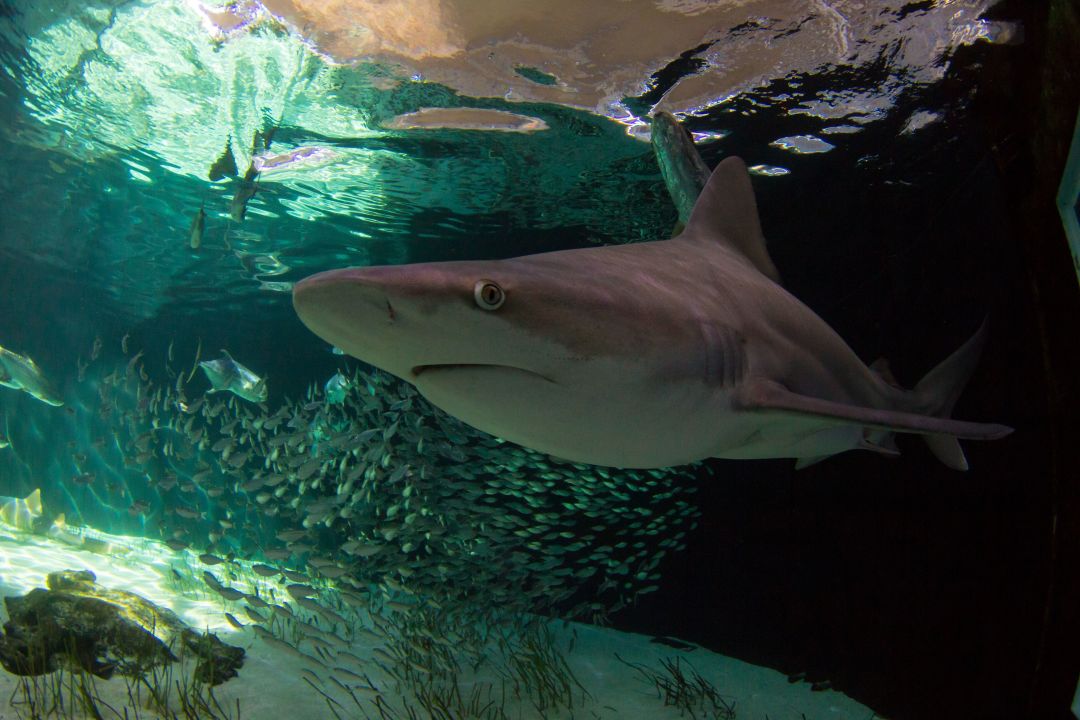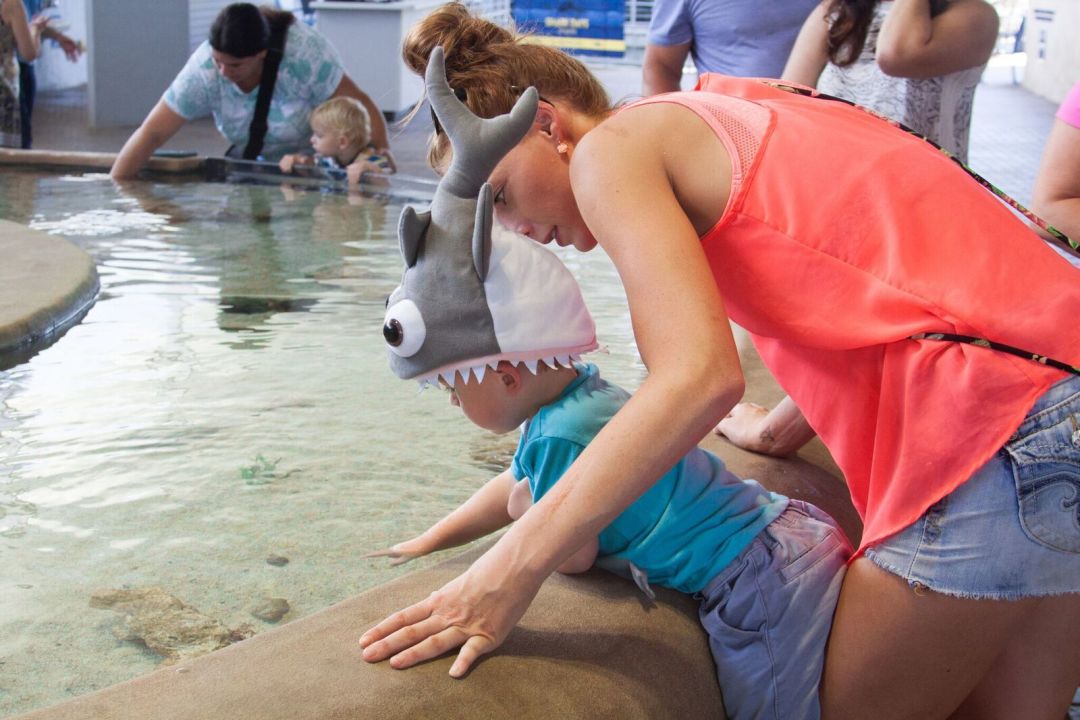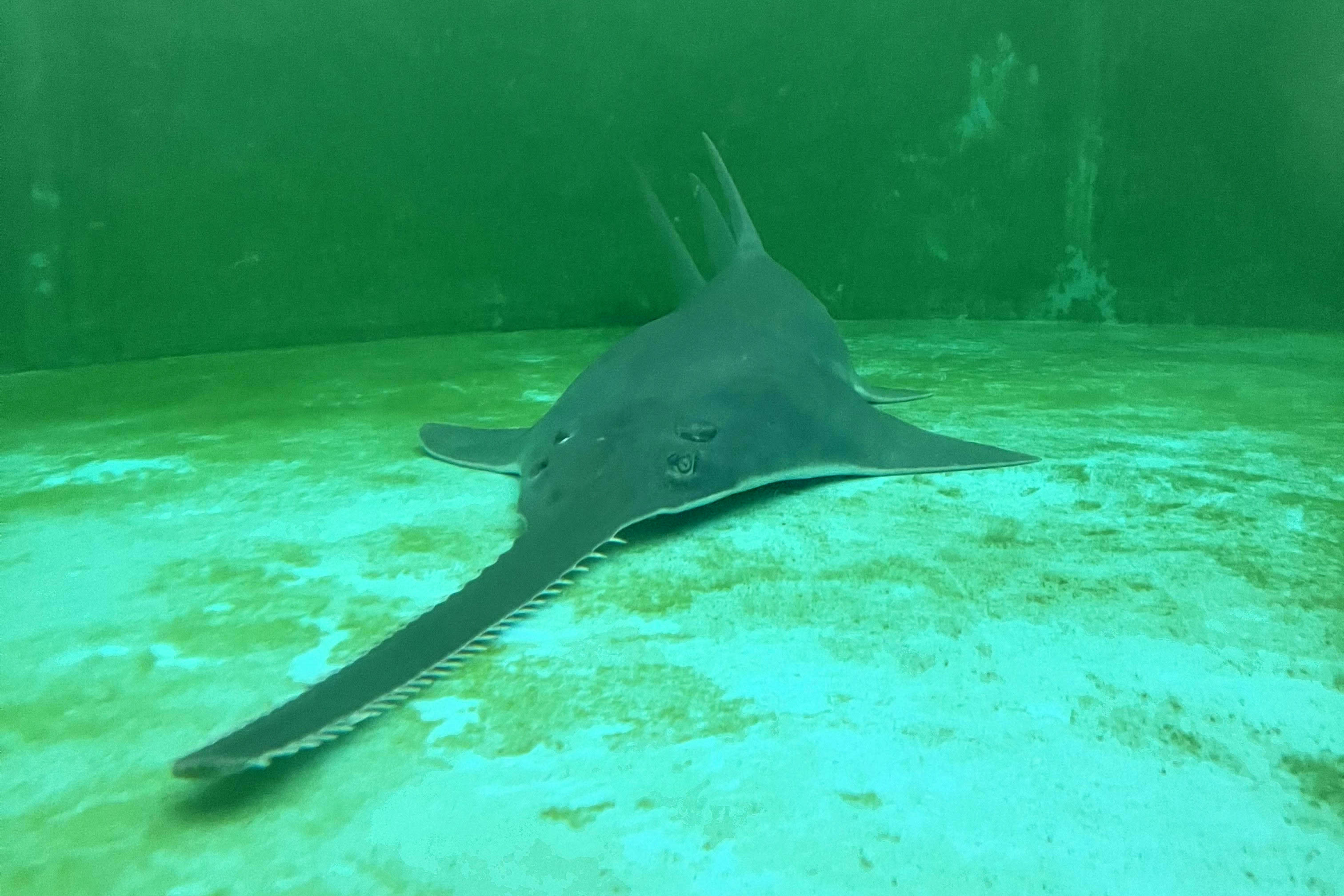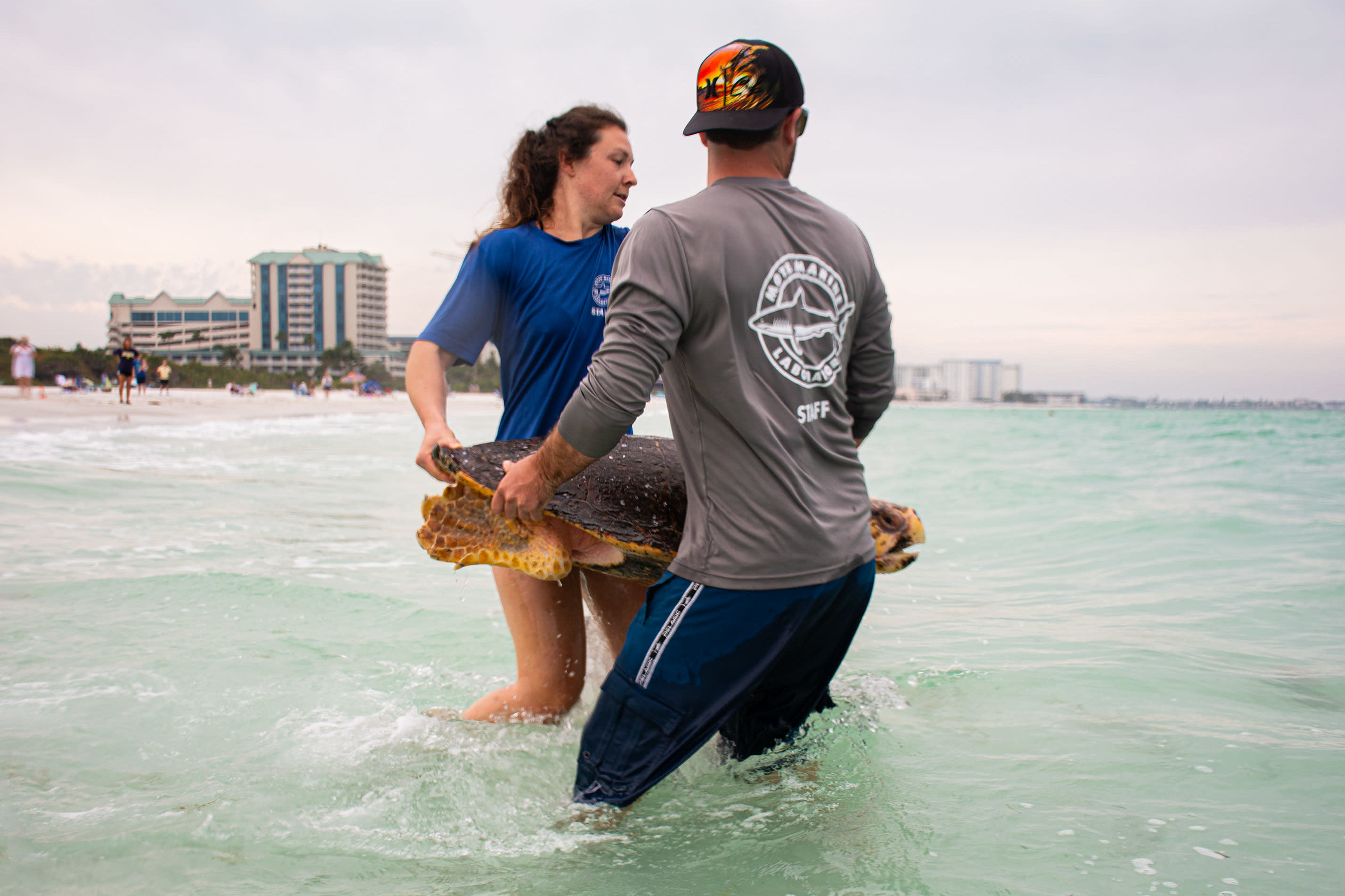Shark Days Return to Mote Marine

A sandbar shark at Mote
Image: Conor Goulding
Shark super-fans are well aware that the popular annual "Shark Week" on the Discovery channel is in full swing, but, lucky for us, we here in Sarasota get our own local extension. Next week, Mote Marine is celebrating sharks in its own way: On Wednesday, Aug. 7, Mote will be starting the party with a Science Cafe installation at Sage and is ending the week Saturday with the Fins & Fun Family Festival. You can check out the Mote website for a full event lineup.
To get ready for all of this shark fun, we consulted our own expert, Mote senior scientist and the director of the Center for Shark Research, Robert Hueter.

Shark Days at Mote
Image: Conor Goulding
What are some of the latest shark projects Mote scientists are working on?
Since 2012, we have been conducting extensive research on the great white shark of the northwest Atlantic Ocean. We have been tagging different specimens in an effort to determine the lifecycle of the species. By doing this, we can gain precise information about where they are feeding, mating and giving birth. We research sharks who are all the way up in Nova Scotia to down here in the Gulf, a massive area of water to monitor. Since 2005, we have been working in Cuba, researching how sharks are affected by fisheries. That research is now also continuing with a new project in Puerto Rico.
Does the great white shark ever venture near Sarasota?
They do come into the Gulf, but for the most part, they like to stay out where the water is deeper, in the range of 25-50 miles off our coast.
What should we know about interacting with sharks in the Gulf?
Firstly, understand that sharks are out there. It is actually a good sign that they are, because it means that the water is healthy. For example, sharks are very sensitive to red tide and pollution, so they would not be coming around if the water was in bad shape. Secondly, most sharks are just trying to make an "honest living" and humans aren't on their menu. Despite all the media, they are not out to get you.
Are there any precautions we should take to avoid shark interactions?
Try not to swim at dawn or dusk, as sharks are more active then, and darker skies mean they have less visibility to distinguish their prey. I like to use the little rhyme: "In the summertime between the months of five and nine go swimming in the Gulf from nine to five.” Avoid wearing sparkly jewelry or brightly colored bathing suits that could make you look more "fish-like.” If you have an open bleeding wound, sharks do have an excellent sense of smell. You don't want to ring the shark's dinner bell!
As far as shark conservation, is there anything regular citizens can be doing to help out?
The whole process starts with research. When I first came to Mote in 1988, we were seeing alarming signs of trouble in the shark population, with a serious decline in shark numbers. In the past 10 years, we actually have had great success in the U.S. on federal and state levels bringing commercial fisheries back into balance, as well as getting on top of finning. [Finning is the inhumane practice of cutting off a shark's fins and discarding the animal back into the water where it will die a slow and painful death.] Over the years we have made great progress rebuilding the population. There are lots of ways folks can get involved such as participating as citizen scientists, reporting observations, volunteering at local aquariums and research facilities, and supporting organizations like Mote with funding. It is also important to note that I have found our government representatives in Washington actually do listen and have been quite open about hearing the shark story.
Can you leave us with a shark fact?
There are so many exciting advancements and discoveries we have made with sharks and science. One promising study is researching the bacteria that lives on the body of sharks to develop new forms of human medicine and antibiotics. There are lots of fascinating ways that science can converge.



